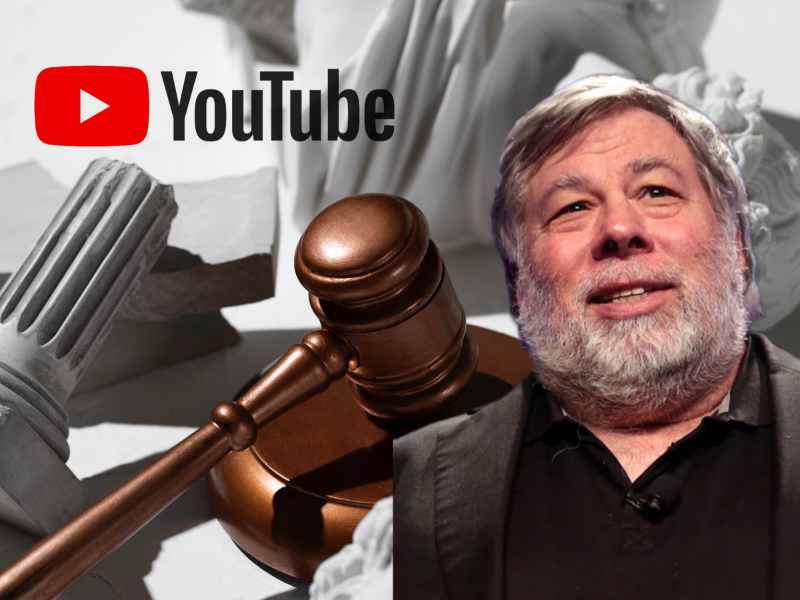- Apple co-founder Steve Wozniak has secured a legal victory in the latest round against YouTube concerning unauthorised videos that falsely involved him in a 2020 bitcoin scam, overturning a prior judgment.
- The San Jose appeals court’s decision challenges YouTube’s use of Section 230 of the Communications Decency Act as a defence, emphasising that the platform cannot evade accountability for scams facilitated by verified, yet compromised, channels.
- In 2020, Apple’s co-founder and 17 others, including Bill Gates, Elon Musk, and Michael Dell, sued YouTube and its parent company, Google, over manipulated videos promoting a bitcoin scam.
Steve Wozniak, Apple’s co-founder, has won the latest round in a legal battle against YouTube over the unauthorised use of manipulated videos that falsely depicted him in a bitcoin scam in 2020.
Appeals court overturns YouTube’s absolution
The latest appeals court decision reversed a previous ruling that absolved YouTube of any responsibility, allowing Steve Wozniak to proceed with legal action against the video streaming service.
A San Jose appeals court ruled that YouTube cannot use a communications regulation to avoid responsibility for a scheme involving a doctored video exploiting the celebrity status of Apple’s co-founder.
Also read: Apple pays $490M over CEO Cook’s false China sales comments
Section 230 under scrutiny
The recent appeals court decision marks a major win for Wozniak and others, overturning a 2022 ruling that shielded businesses from responsibility under Section 230 of the Communications Decency Act.
Section 230 of the Communications Decency Act, passed in 1996, shields online platforms from liability for user-generated content, allowing companies like Google, Facebook, and Twitter to host such content without legal responsibility for each individual post, comment, or video.
The appeals court determined that Google and YouTube were accountable for enabling scams through the granting of verification badges to compromised channels and neglecting to withdraw them when scams were detected. Consequently, the court implied that Section 230 immunity might not be applicable in these instances.
Joe Cotchett, Woznaik’s attorney, stated that the ruling demonstrates how social media companies such as “Google and YouTube take responsibility for their actions and cannot use Section 230 as a total shield for their conduct.”
Also read: Revolut takes action against Meta Platform scams
2020 bitcoin scam
In 2020, when doctored films advertising a bogus scheme became widespread on YouTube, the co-founder of Apple and 17 other people, including Bill Gates, Elon Musk, and Michael Dell, launched a lawsuit against YouTube and its parent firm, Google.
In the video, viewers were instructed to donate bitcoin to a specific address with the promise of receiving double the amount in return. Additionally, supplementary text and images were included, enticing viewers with the prospect of obtaining free bitcoin.

